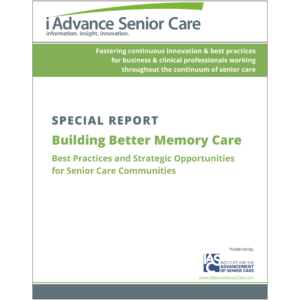Residents with dementia may benefit from light treatment
Treatment with light may improve sleep quality, efficiency and duration as well as reduce depression and agitation in those who have Alzheimer's disease or other dementia, according to a new study.
"It is a simple, inexpensive, non-pharmacological treatment to improve sleep and behavior,” says principal investigator Mariana Figueiro, PhD, associate professor and director of the Light and Health program at the Lighting Research Center at Rensselaer Polytechnic Institute in Troy, New York. "The improvements we saw in agitation and depression were very impressive," she adds.
In the pilot study, a light source producing low levels of a bluish-white light was installed in the rooms of 14 nursing home residents who had Alzheimer's disease and related dementia. Residents were exposed to the light during daytime hours for four weeks.
Researchers collected data related to light-dark and activity-rest patterns using a calibrated instrument before and after the lighting intervention. They also noted measures of sleep quality, depression and agitation, using standardized questionnaires.
In addition to improvements related to sleep, Figueiro says, "Subjective reports by the nursing staff were that the [residents] were calmer, eating better and their overall behavior was more manageable.”
An abstract of the research recently was published in an online supplement of the journal Sleep, and it was presented at the annual meeting of the Associated Professional Sleep Societies.
I Advance Senior Care is the industry-leading source for practical, in-depth, business-building, and resident care information for owners, executives, administrators, and directors of nursing at assisted living communities, skilled nursing facilities, post-acute facilities, and continuing care retirement communities. The I Advance Senior Care editorial team and industry experts provide market analysis, strategic direction, policy commentary, clinical best-practices, business management, and technology breakthroughs.
I Advance Senior Care is part of the Institute for the Advancement of Senior Care and published by Plain-English Health Care.
Related Articles
Topics: Alzheimer's/Dementia











